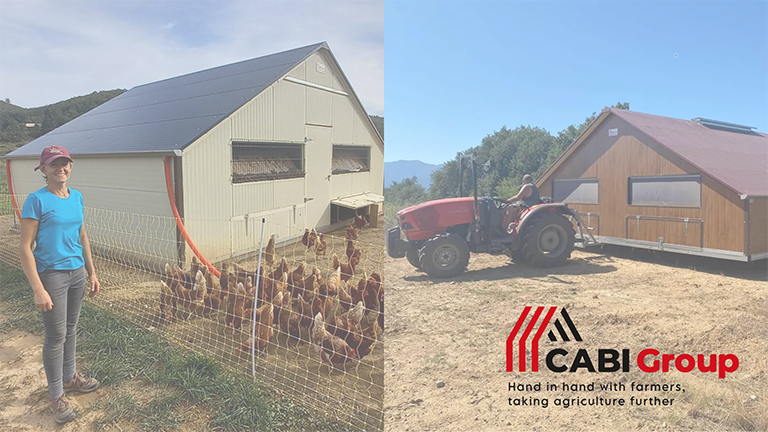For many poultry farmers, the challenge is clear: keep birds healthy, land fresh and labour hours down without cutting corners on welfare. Rising feed costs, tighter biosecurity rules and growing consumer demand for free-range eggs are pushing producers to rethink the way they house their flocks.
Across Europe, mobility has emerged as one answer. By moving housing across pasture, farmers can break parasite cycles, keep ground fresh, and give birds access to clean, nutrient-rich grazing. It is a simple shift in approach that tackles several issues at once and it is already transforming the way flocks are managed.
“We design coops for modern farms, coops that make a positive difference to both the poultry and the land. One of our most popular designs is the flatpack CABI ORIGIN M, now used on over 5,000 farms across Europe,” says Florent Bardet, CEO of CABI Group. “Farmers tell us it reduces labour, improves welfare, and makes better use of their land. We are now making it available to British producers who face many of the same challenges.”
A mobile coop built for working farms
CABI Group’s ORIGIN M is built for pasture-based and regenerative systems, with an insulated structure and solid steel chassis for year-round use. Large wheels make it easy to move, allowing farmers to rotate pasture, spread manure evenly, improve air quality, and keep birds on clean ground.
Delivered as a pre-assembled kit, the ORIGIN M is ready to get to work from day one. The flatpack can be put together in under a day with three pairs of hands, a forklift and a few basic tools. Sizes range from 20 m², suited to 100 birds, to 80 m² for flocks of up to 700.
Once in place, the impact is immediate: a 250-bird unit needs just 7 to 10 hours of care each week, freeing up valuable time that farmers tell us they can spend on other priorities, from pasture management to packing orders.
Aligning welfare and productivity
Coop mobility isn’t just about cleaner ground. Moving the enclosure regularly encourages a range of natural behaviours, from foraging and dust bathing to scratching, which boost physical health and reduce stress. Healthier birds mean better quality eggs, and pasture-raised eggs have been shown to contain higher levels of omega-3 fatty acids, vitamin D and other key nutrients.
The benefits extend beyond the flock. Evenly distributed manure builds soil fertility, while poultry act as natural weeders and pest controllers. This makes mobile coops particularly useful in integrated systems, such as orchards and market gardening, where birds contribute to biodiversity and help reduce reliance on synthetic inputs.
A solution built around your farm, whatever its size or set-up
Whilst fixed sheds and ad-hoc mobile builds remain common in the UK, many European farmers have been moving towards more flexible housing that works with their land, not against it.
“The ORIGIN M supports pasture rotation, which is a real help for managing land in wet winters,” says Florent Bardet. “We can also add customised features like solar-powered lighting, hatch automation, automatic nest box closures and configurable skylights for natural light control, so it adapts to all kinds of farm systems.”
As UK farming navigates tighter biosecurity rules, rising costs and changing customer expectations, mobile housing is proving to be a practical way to keep welfare high, productivity steady and land in good condition.
Already trusted by thousands of farmers in Europe, the ORIGIN M now gives UK producers the opportunity to bring those same benefits home.
To learn more or request a quote: florent.bardet@cabi-group.fr


